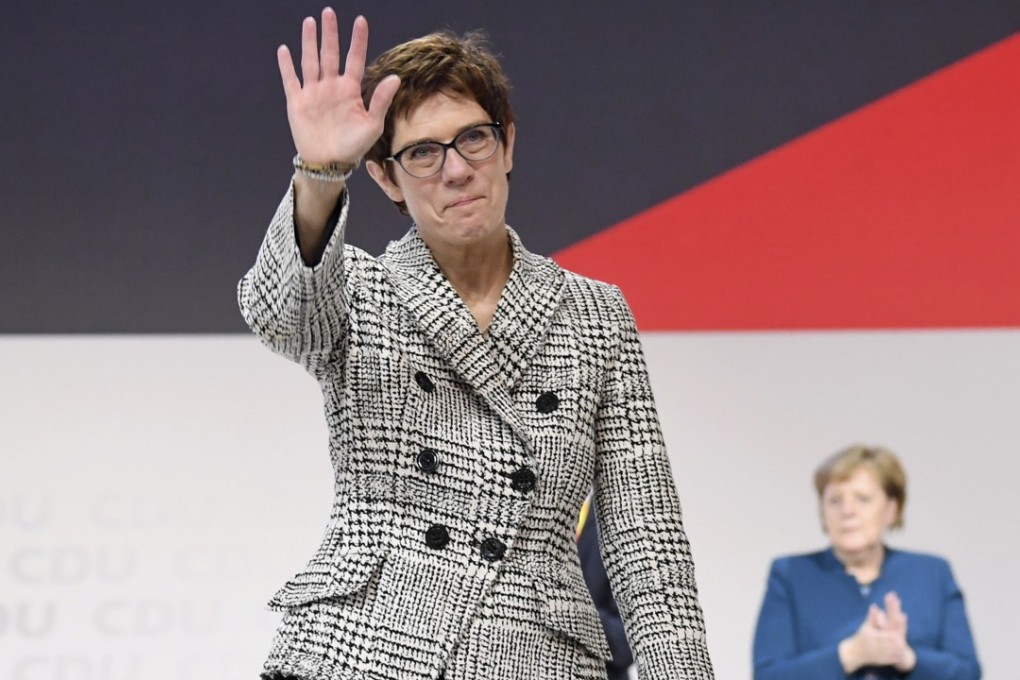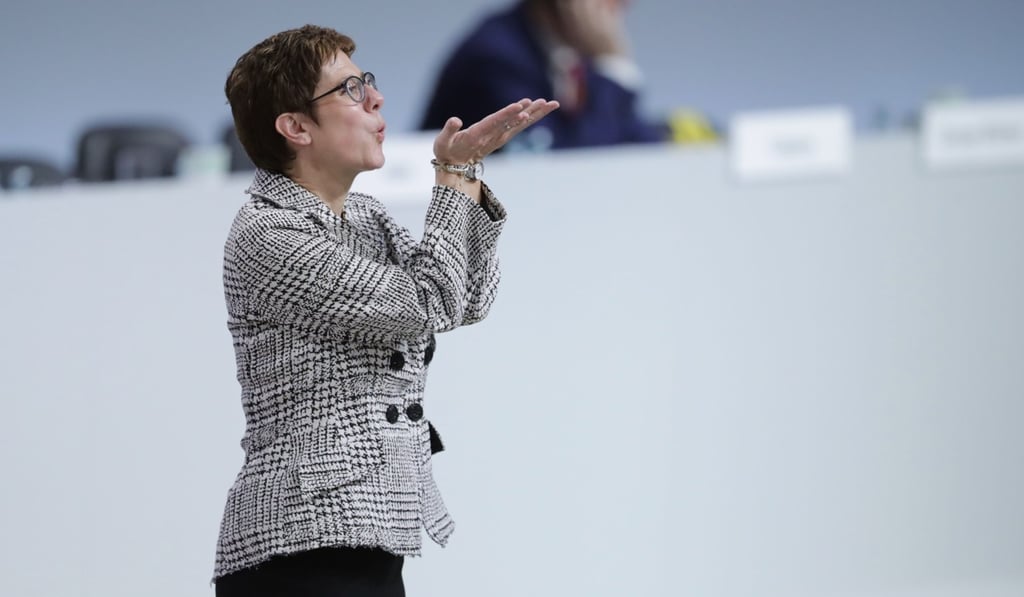Germany’s Angela Merkel to be succeeded by long-time ally Annegret Kramp-Karrenbauer
- Of the 999 votes cast at a party conference in Hamburg, 517 – or 52 per cent – were in favour of Kramp-Karrenbauer
- Securing this job represents a major step toward becoming chancellor once Merkel bows out of power in 2021

Annegret Kramp-Karrenbauer, a long-time ally of Angela Merkel, won a tight run-off vote on Friday to succeed the chancellor as the head of Germany’s conservative Christian Democrats (CDU).
Of the 999 votes cast at a party conference in Hamburg, 517 – or 52 per cent – were in favour of Kramp-Karrenbauer, while 482 (48 per cent) backed Friedrich Merz, a millionaire corporate lawyer who had been attempting a comeback after being sidelined by Merkel nearly a decade ago.
Securing the CDU top job represents a major step toward becoming chancellor once Merkel bows out of power in 2021.
The third candidate, Health Minister Jens Spahn, was eliminated in the first round of voting earlier on Friday.
The CDU’s secretary general, Kramp-Karrenbauer made her case ahead of the vote by saying the CDU had to maintain its position as the “last unicorn in Europe,” the bloc’s last successful catch-all party.
